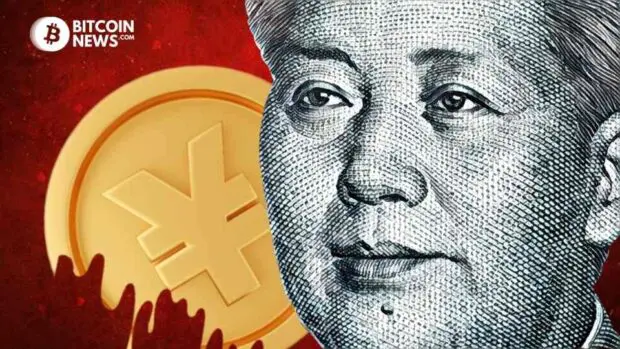The new digital yuan could make Bitcoin attractive. The absurd measure to make unused currency worthless may benefit Bitcoin.
Using its prototype Central Bank Digital Currency (CBDC), the Chinese Communist Party wants to implement an expiration system under the pretext of a “warming” of the economy.
The design consists of a removal of the currency from the bank accounts of users who have not used it in the time the government stipulates.
This raises concerns for the population and especially for those who are opposed to the regime, as yet another artifice may be used to bring about total surveillance and control.
Besides the concern with the devaluation of the money they keep encased in their bank accounts, Chinese citizens will now have to worry about an “expiration date” for the validity of their money kept.
In addition to controlling the country’s internal economic flow, the behavior of citizens will be under unprecedented control by the Chinese Communist Party authorities, since issues such as subordination to the Party and subversion can also “expire” the users’ money.
This is a measure that worries individuals, but especially those unfamiliar with the Bitcoin phenomenon, as the cryptocurrency is the first thing that comes to mind to protect savings.
Bitcoin can completely shield the assets of the citizens of China and anywhere in the world where the government proposes a similar measure.
China became the first country to conduct a trial run of its digital currency in October 2020, when the authorities in Shenzhen held a lottery to distribute a total of 10 million yuan, or roughly $1.5 million, in digital money. Nearly 2 million individuals applied, and only 50,000 were chosen.
According to China Daily, the winners were then required to download a digital Renminbi app in order to receive a “red letter” – a Chinese tradition used to gift money – worth 200 digital yuan ($30), which they could then spend at over 3,000 designated retailers in Shenzhen’s Luohu district. Following that, they were able to purchase supplies from local pharmacies, supermarkets, and even Walmart.










